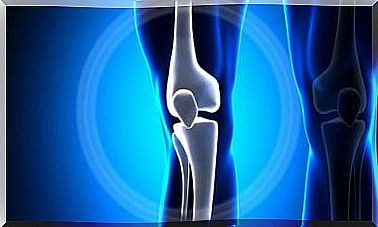Nocturia: Symptoms And Possible Treatments

Nocturia is a condition in which nocturnal sleep is interrupted due to excessive diuresis. The person, therefore, wakes up several times to go to the bathroom.
This frequent urination increases with age and affects men and women equally. The underlying causes are different.
If the person gets up more than twice a night, it can become a problem. Here, nocturia can have a negative effect on daily activities and, therefore, affect the quality of life.
Causes of nocturia

The causes that can trigger this problem are different. Drinking liquids in the late afternoon or consuming alcohol or caffeine after dinner can cause nocturia.
On the other hand, urinary diseases are an additional cause of frequent urination during the night, as are high levels of calcium in the blood or taking certain medications, such as diuretics. Some pathologies can be the cause of this disorder; among these we mention the following:
- Untreated diabetes.
- Insipid or gestational diabetes.
- Heart failure.
- Edema of the lower limbs.
- Sleep disturbances, such as apnea.
How is nocturia diagnosed?
If nocturia is suspected and to help the doctor make a valid diagnosis, it is advisable to keep a diary in which to note the frequency of urination.
For two days it will be necessary to write down the amount of fluids taken, the number of times you go to the bathroom, the amount of urine expelled, the medicines taken, any disorders affecting the urinary tract and related symptoms.
Afterward, the doctor will review the diary to determine the possible causes of nocturia and what treatment to use. The specialist will be able to prescribe urinalysis, in order to investigate the situation and evaluate any infections.
Symptoms

Insomnia is the main symptom of this condition. You should sleep between 6 and 8 consecutive hours, without having to go to the bathroom. The person with nocturia, on the other hand, interrupts sleep more than once to urinate, which can alter the sleep cycle.
Nocturnal and diurnal polyuria also indicate the presence of nocturia. In the first case we refer to a higher than normal amount of urine while sleeping: in principle, we are talking about over 2 liters. We talk about diurnal polyuria, however, when the same situation occurs during the day.
During the night, the person may produce more urine than the body is able to hold; this determines the need to urinate.
Can we prevent nocturia?
The World Health Organization (WHO) has released a set of guidelines for the prevention of this condition. Some are closely associated with the causes and are as follows:
- Avoid drinking a lot of water in the afternoon and, in particular, avoid alcohol and exciting substances.
- Go to the bathroom regularly, especially throughout the day and before going to sleep.
- Increase the consumption of vegetables, fruit, legumes, soy and derivatives. At the same time, reduce the consumption of red meat, saturated fats, salt, sugar and calcium.
- Lie flat after lunch.
- Avoid long journeys, constipation and humid environments.
- Engage in physical activity.
- Prevent overweight and obesity.
Is there a treatment?

If you suspect nocturia, contact your GP who will refer you to the urologist if necessary. Treatment will depend on the underlying causes.
The options include different types of interventions or drug therapies. As for the former, some possible measures to take into account are:
- In case of diuretic therapy, take the medications 6 hours before bedtime.
- Rest in the middle of the afternoon.
- Keep your legs elevated from lying down.
- Wear compression stockings to prevent fluid build-up.
Drug treatment could consist of the administration of anticholinergic drugs. These medicines calm the symptoms of an overactive bladder.
Some diuretics can help regulate urine production. Finally, medicines with desmopressin as the active substance reduce the production of urine by the kidneys.








